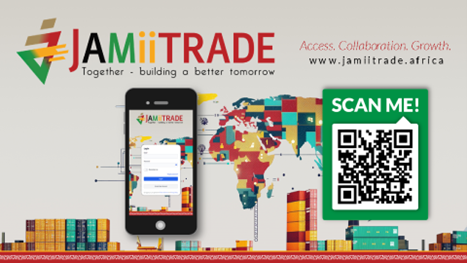FREE TRADE AND SHARED VALUE – A MATCH MADE FOR AFRICA?
The African Continental Free Trade Area (AfCFTA) is big news. It was the central leitmotif to November’s Africa Investment Forum, attended by four sitting African Presidents or Prime Ministers, the US Deputy Secretary of Commerce and about 2000 enthusiastic investors in tomorrow’s Africa.
While they enthused about the undoubted potential of the AfCFTA (an estimated market of USD 2.5tn), some present were considering the gap between the vision and current reality. One of the aims of AfCFTA is to increase local sourcing and transformation of African raw materials. Looking through the lens of the Fast-Moving Consumer Goods (FMCG) sector and Nestlé in particular, there are many challenges to this that tariff elimination alone will be unlikely to resolve. For any company operating to international standards or – in the spirit of the AfCFTA ambitions – wishing to trade more within Africa and beyond, there are often raw material quality issues that tariff elimination will do little to address.
Where AfCFTA can and should help is in addressing existing barriers. Moving goods across borders even within Regional Economic Communities (RECs) causes delays and added cost in areas such as transport.
There are other barriers specific but not unique to FMCG. In many member states it is a requirement to register products before they can be sold. This causes delays of up to 6 months to market, doesn’t assure safety or quality and, even within RECs, there is little mutual recognition between member states.
While there are 54 signatures for AfCFTA, what is that going to mean for the countries implementing it and the businesses operating on the continent? To quote a 2017 United Nations Conference on Trade and Development (UNCTAD) study, “AfCFTA is aimed at helping African countries to boost economic and trade growth, transform their economies and achieve the Sustainable Development Goals and the African Union’s Agenda 2063”. There is already recognition of the potential impact of AfCFTA on fulfilling Africa’s societal agenda.
At the same time, the study predicts “while aggregate gains are substantial, benefits and costs of the CFTA vary significantly across countries. Countries may face adjustment costs during the transition period especially if their economies aren’t flexible”.
Meanwhile, others are warning of societal pitfalls that could be exacerbated by insensitive operationalisation. The United Nations Economic Commission for Africa (UNECA) in particular has a series of recommendations for ensuring human rights are respected.
Negotiations for selective implementation – which will inevitably slow down the aggregated impact – are already underway: one country is understood to be asking for a 15-year moratorium on tariff elimination.
What could be the role or Shared Value in all of this?
As the Shared Value Africa Initiative is about to embark on research, we know that there is currently very little data on the state of Creating Shared Value and other responsible business approaches in Africa
However, the Shared Value Africa Initiative provides the intellectual framework, together with a caucus of committed, and likeminded international and regional operators, which could be mobilized to support with research and collective action.
One theory is that business growth driven by a less challenging business environment could bring commensurate scale to societal impact, notably in the field of increased local – or better still regional – sourcing and its attendant positive effects. In theory and in certain industries, including FMCG, if you manufacture in one country but cannot get enough raw materials there, it should become more attractive to procure from neighbouring countries. If you do that responsibly, building capacity in the supplier communities as you buy, your positive societal impact could be multiplied many times. Likewise if missed business opportunities caused by current barriers turn into increased sales when the barriers are removed, if what you are selling delivers societal benefits – for example micronutrient fortification – again, the benefits reach a broader audience and have a deeper impact, while you grow your business and manage your costs.
Properly systematized, this could in turn provide a significant platform for the Shared Value way of doing business to become institutionalized at continental level, as the preferred or recognized blueprint for accruing societal benefit from business growth. In this way, Africa can build responsible business into the AfCFTA from the start rather than having to retro-fit it afterwards.
Points of convergence between growth and societal benefit already exist. Some (for example Fortification and Food Safety) will tend to be specific to companies like Nestlé or their sectors. Others will have more universal appeal, for example Youth Employment and Women’s Empowerment, Plastic Stewardship, Local Sourcing and Transformation. In all cases, Shared Value companies can point to progress in Africa against their own global or continental Initiatives, as proof of their commitment.
Platforms to advance an agenda of institutionalizing responsible business behaviour alongside free movement of goods, services and people as AfCFTA operationalizes either exist or are within reach. Systematic engagement is a precursor for acceptance.
Some are urging caution, however. UNECA for one is warning on the uneven impact of AfCFTA on human rights. Taken literally, their recommendations provide potential for member states to legislate and restrict, which could delay or reverse the positive impact of AfCFTA. This is also true, according to UNCTAD, if implementation is not accompanied by integrated policies to tackle infrastructure, industrialization and good governance that ensure a level playing field.
As responsible businesses, perhaps we can conclude that the time is now to step up and show our colours as Shared Value Champions. In this way, the liberalization of African markets can be accompanied by the prospect that those of us who subscribe to shared value strategies can also show ways of doing business that deliver simultaneous societal and shareholder benefit, so that companies and the communities they serve derive the benefit as AfCFTA operationalises.
Guest contributor John Bee is the Regional Head of Regulatory and Scientific Affairs, Sub-Saharan Africa at Nestlé S.A.




